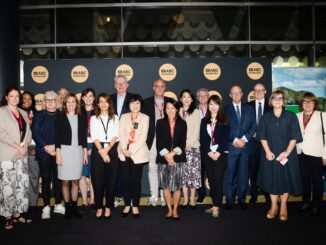
Indian audio series startup Pocket FM’s revenue 6X, crosses INR 1,000 Cr
Audio entertainment platform Pocket FM’s global revenue soared 496% to INR 1,051.97 Cr ($123 million) in the financial year 2023-24 (FY24) from INR 176.36 Cr ($20 million) in the previous fiscal year.Pocket FM is a company based in Bengaluru, Karnataka, India, specialising in the media & entertainment sector. The company was established in 2018 by Nishanth S., Prateek Dixit and Rohan Nayak.With a community of 200 million listeners, Pocket FM offers more than 75,000 audio series, powered by a community of over 250,000 writers worldwide. It offers diverse content across multiple languages and genres, including romance, drama, thriller, fantasy, science fiction and action thriller among others.Users spend an average of over 115 minutes of daily listening on the platform.Its current core markets are the US and India, and it has recently forayed into Europe and Latin America. Its content competes with Kuku FM, Spotify and Amazon’s Audible.In a statement, the company also said that it managed to trim its global loss by 21% to INR 165 Cr ($ 19 million) from INR 209 Cr ($ 24.5 million) in FY23.A significant portion of Pocket FM’s revenue comes from its microtransaction-led subscription model, which generated a revenue of INR 934.73 Cr ($110 million), up 484% from INR 160.05 Cr ($ 18.9 million) in FY23, the statement said.Revenue from advertisements surged over 600% to INR 89.34 Cr ($ 10.5 million) from INR 12.5 Cr ($1.47 million) in the previous fiscal year.
According to its MCA filing, Pocket FM’s operating revenue from the Indian entity almost doubled to INR 260 Cr ($ 30.5 million) in FY24 from INR 129.7 Cr ($15.2 million) in the previous fiscal year.Its India arm’s net loss dropped 77.1% to INR 15.7 Cr ($ 1.8 million) during the year under review from INR 68.7 Cr in FY23.The company credits its growth to its freemium model, which allows users to access a limited portion of audio content for free while monetising binge-listening behaviour through coin-based microtransactions.The platform allows users to unlock additional episodes by purchasing coin packs starting as low as INR 49.According to Anurag Sharma, Chief Financial Officer, 70% of Pocket FM’s revenue comes from the US, followed by 15% from India, and the remaining from other markets.In March this year, Pocket FM had raised $103 million in series D funding, in a round led by Lightspeed Venture Partners, with participation from Stepstone Group. This nearly doubled the company’s valuation to about $750 million from $390 million when it previously raised $65 million in its Series C round in March 2022. […]





